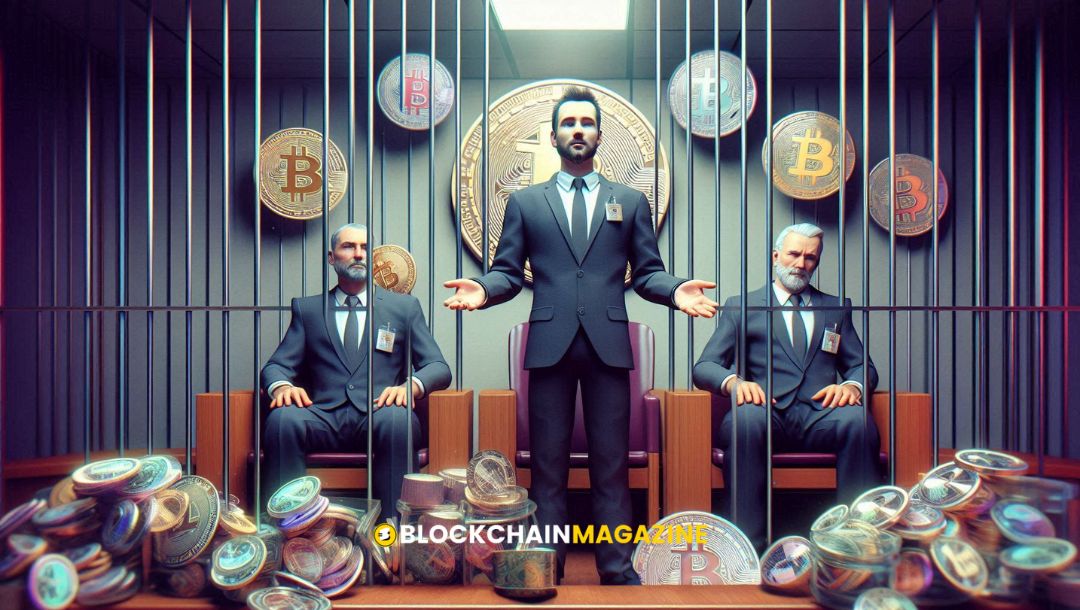Top 10 Amazing ways Accelerated Blockchain Development Can Yield Decentralized KYC Solution
In today’s digital world, identity theft is a big problem. At the same time, businesses struggle with long Know Your Customer (KYC) processes. This is why we need a decentralized way to verify identities. Blockchain can help by making secure and unchangeable digital identities. Using blockchain for identity checks can reduce identity theft, make KYC easier, and
Key Takeaways
- Blockchain can create secure digital identities that are hard to fake.
- Smart contracts can automate KYC processes, saving time and effort.
- Tokenizing assets on the blockchain can make them easier to track and verify.
- Transparency in blockchain builds trust among users and businesses.
- Decentralized systems can cut costs by removing the need for middlemen.
Decentralized Identity Verification
Blockchain technology allows for secure and decentralized identity verification, reducing worries about privacy and data breaches. Users can control their personal information, providing a safe base for DeFi platforms without giving up privacy.
People can manage and confirm their digital identities through cryptocurrency wallets with decentralized identity solutions. This helps speed up processes like KYC (Know Your Customer) verification for different services.
The rise of the digital economy has made identity theft a common problem. At the same time, businesses struggle with long KYC processes across various rules. This calls for a decentralized identity layer. Blockchain offers a strong solution for identity management by creating decentralized, secure, and tamper-proof digital identities. Using blockchain for identity verification lowers the risk of identity theft, streamlines KYC processes, and empowers individuals to manage and share their identity credentials securely.
- Self-sovereign digital identities are controlled and owned by individuals on their digital wallets.
- Streamlined KYC using immutable identity records from accredited third parties.
- Selective disclosure of identity attributes like name, address, and ID documents on a need-to-know basis.
- Integrations with applications across industries like banking, finance, and real estate for verification.
- Additional layers for stronger credentials like biometrics, 2-factor authentication, etc.
Smart Contracts
Smart contracts are self-executing pieces of code that automate agreements without needing middlemen. They are a key part of blockchain technology, especially in decentralized finance (DeFi). Smart contracts make transactions smooth, safe, and automatic, cutting down on the need for third parties and making processes faster.
One of the main uses of smart contracts is in identity verification. By using smart contracts for identity verification in DeFi, the verification process becomes automated. This means that users can prove who they are without needing a central authority. This is a big step forward for decentralized KYC (Know Your Customer) solutions.
Smart contracts also have many other uses. They can handle money transfers, service delivery, and even enforce legal rules. This makes them very useful for businesses. For example, a smart contract can automatically release payment once a service is delivered, without needing a person to approve it.
Smart contracts are changing the way we do business by making transactions more efficient and secure.
Tokenization of Assets
Tokenization allows real-world assets like real estate, precious metals, and company shares to be divided into smaller units. This makes high-value assets more accessible to a broader range of investors. Blockchain-powered platforms enable fractional ownership, liquidity, and easier transfer of ownership.
Tokenization opens up new investment opportunities by bringing a variety of assets into the DeFi space. This increases the diversity of financial instruments available to users.
- Fractional ownership
- Increased liquidity
- New investment opportunities
Tokenization is transforming how we think about ownership and investment, making it easier for everyone to participate in the financial market.
Trust Through Transparency
Blockchain’s ability to make everything transparent is changing how people act at work. Blockchain’s transparency is set to change how we do transactions in the future. This is a big deal for decentralized finance (DeFi). It lets users check transactions on a ledger that can’t be changed, which builds trust. This is very different from traditional finance, where things are often hidden.
Blockchain offers a fully auditable and legitimate ledger of transactions. Anyone can join the blockchain network and see all the data. This is how blockchain works as a machine for transparency.
This improved efficiency also provides transparency, dependability, and authenticity.
Data is more secure because it is shared across many systems in different countries and checked before being recorded. Every data block is locked using encryption and linked to the one before it.
Identity Management and Verification
Blockchain technology empowers individuals to manage and share their identity credentials securely. This decentralized approach allows people to control and confirm their digital identities through cryptocurrency wallets equipped with decentralized identity solutions. This helps to expedite procedures like KYC (Know Your Customer) verification for different services.
Reduced Costs Through Elimination of Intermediaries
Blockchain technology can greatly cut down costs by removing the need for middlemen in financial transactions. With decentralized exchanges and lending platforms, users can avoid the high fees usually charged by traditional banks and financial systems. This leads to significant savings and more efficient transactions.
- Lower Transaction Fees: By using blockchain, transaction fees are much lower compared to traditional banking systems.
- Direct Lending Platforms: Users can lend and borrow directly without needing a bank, reducing loan origination costs.
- Automated Processes: Blockchain automates many processes, cutting down on operational costs and speeding up settlements.
The elimination of intermediaries not only saves money but also reduces the risk of centralized failures, making the system more robust and reliable.
Improved Data Security and Privacy
Blockchain technology offers enhanced security and privacy features, making it ideal for industries like healthcare and finance. Data is more secure because it is shared across different systems in various countries and verified before being recorded. Each data block is encrypted and linked to the previous one, ensuring transparency, dependability, and authenticity.
Using secure sharing protocols, users can keep their personal records in customizable wallets. These wallets are accessible to approved doctors, simplifying the processing of insurance claims and facilitating quicker, more transparent settlements. This eliminates middlemen and guarantees immutability.
- Immediate access to a patient’s complete medical history and records for authorized personnel.
- Ensures the privacy and security of sensitive patient data encrypted and stored on decentralized nodes.
- Streamlines administrative tasks like insurance claims processing through automated smart contracts.
- Facilitates medical research by enabling researchers to analyze anonymized healthcare datasets from multiple sources.
Blockchain technology revolutionizes identity verification in DeFi, using biometric data and cryptographic techniques for enhanced security and privacy.
Peer-to-Peer Energy Trading
Peer-to-peer (P2P) energy trading allows people and companies to buy and sell extra renewable energy directly with each other, skipping traditional energy suppliers. This decentralized method promotes energy sustainability, supports local energy markets, and lets consumers take an active role in energy distribution.
Producers and consumers can transact directly by developing a blockchain app for trading renewable energy credits or actual units of electricity. Some ways this could work:
- Prosumers with solar panels or other small generators can directly sell extra energy to neighbors on the platform.
- Utilities help by operating validator nodes to check energy volume and ensure settlement.
The rise of renewable energy has changed the old way of power generation and distribution. But small producers still need help to join energy markets. This is where decentralized energy trading comes in, using blockchain as the base platform.
Cryptocurrency Wallets
The rise of cryptocurrencies and blockchain technology has spurred innovation in many sectors, completely changing how we see and use digital assets. At the center of this revolution is the crypto wallet, a digital tool that lets users safely store, manage, and deal with their cryptocurrency holdings. Although the idea of cryptocurrency wallets is often connected to financial transactions, their applications go well beyond traditional banking.
User experience will remain a top priority when designing and developing cryptocurrency wallets. Future wallets will put an emphasis on accessibility, simplicity, and intuitiveness to make it easier for users of all technical skill levels to handle their digital assets.
Enhanced security will always come first when developing cryptocurrency wallets. To protect user funds and data from cyber threats and unlawful access, future wallets will have advanced security features such as hardware-based security solutions, biometric verification, and multi-factor authentication.
The market for cryptocurrency wallets is predicted to grow at a rate of 9.3% CAGR and reach US$ 3,675.4 million by 2033, according to figures.
- Multicurrency Wallet: Deploy wallets that are intuitive, user-friendly, secure & scalable
- NFT Wallet: Private key-based solutions to buy, sell and exchange non-fungible tokens
- TRON Wallet: Tron wallet holds private keys & TRX coins securely within itself.
- Mobile Wallet App: Mobile wallet makes payments & transfer process simple.
- Defi Wallet: A wallet that is fortified from hacks, & immune to cross-border regulations
Digital Identity App
A blockchain-based digital identity app can help solve these challenges by empowering users to securely own and share verified identity attributes. Some features it could offer include:
- Self-sovereign digital identities are controlled and owned by individuals on their digital wallets.
- Streamlined KYC using immutable identity records from accredited third parties.
- Selective disclosure of identity attributes like name, address, and ID documents on a need-to-know basis.
- Integrations with applications across industries like banking, finance, and real estate for verification.
- Additional layers for stronger credentials like biometrics, 2-factor authentication, etc.
Developing a foundational identity layer has immense scope. Your app could set a precedent in transforming global digital interactions.
Discover the future of secure online identities with our Digital Identity App. It’s designed to keep your personal information safe and easily accessible. Want to learn more? Visit our website today!
Conclusion
In conclusion, the rise of the digital economy has brought about new challenges, particularly in the realm of identity theft and the cumbersome KYC processes businesses face. Accelerated blockchain development offers a promising solution by providing a decentralized, secure, and tamper-proof method for identity management. This technology not only reduces the risk of identity theft but also streamlines KYC processes, making them more efficient and less repetitive for customers. By leveraging blockchain, we can create a more secure and transparent system that benefits both businesses and individuals. As we continue to explore and implement these top 10 ways, the future of decentralized KYC solutions looks bright and full of potential.
Frequently Asked Questions
What is decentralized identity verification?
Decentralized identity verification uses blockchain to create secure and tamper-proof digital identities. This helps reduce identity theft and makes KYC processes easier.
How do smart contracts work?
Smart contracts are self-executing contracts with the terms directly written into code. They automatically enforce and execute the terms when conditions are met, eliminating the need for intermediaries.
What is the tokenization of assets?
Tokenization of assets involves converting physical or digital assets into digital tokens on a blockchain. This makes it easier to transfer, trade, and manage assets securely.
How does blockchain ensure trust through transparency?
Blockchain’s transparency allows anyone to verify transactions on an immutable ledger. This builds trust as everyone can see and verify the data, unlike traditional systems where information is often hidden.
Why is identity management important in blockchain?
Identity management on blockchain gives users control over their data and enhances security. It simplifies KYC processes and reduces the risk of identity theft.
What are the cost benefits of using blockchain?
Blockchain reduces costs by eliminating intermediaries in transactions. This means lower fees and faster transactions compared to traditional financial systems.
Stay informed with daily updates from Blockchain Magazine on Google News. Click here to follow us and mark as favorite: [Blockchain Magazine on Google News].
Get Blockchain Insights In Inbox
Stay ahead of the curve with expert analysis and market updates.
latest from tech
Disclaimer: Any post shared by a third-party agency are sponsored and Blockchain Magazine has no views on any such posts. The views and opinions expressed in this post are those of the clients and do not necessarily reflect the official policy or position of Blockchain Magazine. The information provided in this post is for informational purposes only and should not be considered as financial, investment, or professional advice. Blockchain Magazine does not endorse or promote any specific products, services, or companies mentioned in this posts. Readers are encouraged to conduct their own research and consult with a qualified professional before making any financial decisions. The featured image used is just a creative depiction of the title and it does not intend to hurt sentiments of any person or institution. If it hurts anyone sentiments, please do not hesitate to reach out to Blockchain Magazine.

 Bitcoin
Bitcoin  Ethereum
Ethereum  XRP
XRP  Tether
Tether  Solana
Solana  Dogecoin
Dogecoin  USDC
USDC  Cardano
Cardano  Lido Staked Ether
Lido Staked Ether  TRON
TRON  Chainlink
Chainlink  Avalanche
Avalanche  Sui
Sui  Wrapped stETH
Wrapped stETH  Wrapped Bitcoin
Wrapped Bitcoin  Stellar
Stellar  Toncoin
Toncoin  Hedera
Hedera  Shiba Inu
Shiba Inu  Polkadot
Polkadot  WETH
WETH  LEO Token
LEO Token  Bitcoin Cash
Bitcoin Cash  Litecoin
Litecoin  Hyperliquid
Hyperliquid  Official Trump
Official Trump  Bitget Token
Bitget Token  Uniswap
Uniswap  Pepe
Pepe  Wrapped eETH
Wrapped eETH  USDS
USDS  NEAR Protocol
NEAR Protocol  Ethena USDe
Ethena USDe  Aave
Aave  Aptos
Aptos  Internet Computer
Internet Computer  Ondo
Ondo  WhiteBIT Coin
WhiteBIT Coin  Monero
Monero  Ethereum Classic
Ethereum Classic  Cronos
Cronos  POL (ex-MATIC)
POL (ex-MATIC)  Mantle
Mantle  Render
Render  Dai
Dai  Bittensor
Bittensor  Algorand
Algorand  Artificial Superintelligence Alliance
Artificial Superintelligence Alliance 




